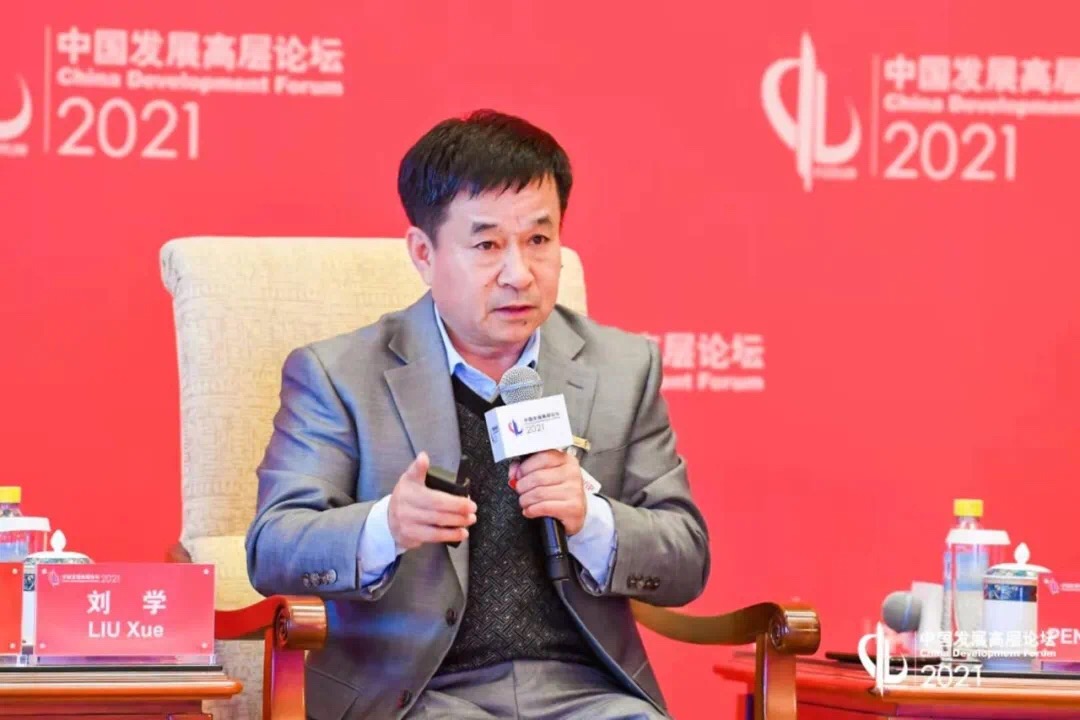
While making significant contributions to China's economy,Internet platform companies are both players as well as market rule makers and enforcers,and regulatory efforts should join forces with the market to keep their intention to crush competition and seek monopoly in check.
Professor Liu Xue at Guanghua School of Management, Peking University,made remarks at the three-day China Development Forum 2021 held in late March in Beijing. The theme of this year's event,hosted by the Development Research Center of the State Council and organized by the China Development Research Foundation, is“China on a New Journey of Modernization.”
During a panel discussion centered on the theme of“platform economy: advancing shared development”, Professor Liu,from the Department of Organization and Strategy, Guanghua School of Management, stressed that the rising of most platforms is based on innovations of technology and business models rather than regulatory arbitrage, and these platform companies are playing multiple complex roles,such as competitors with traditional businesses or similar platforms as well as administrators in a multi-sided market.
As a competitor, platform company is strongly motivated to crush competition,pursue monopoly and seek maximum profits. As an administrator,it determines rules of the game in the platform market and ensures that they are properly enforced,including who has the right to operate in the platform market. Through pricing mechanism and especially,the data traffic distribution mechanism,platform firms are able to determine how much value the platform eco-system generates and how it is distributed among platform participants (sellers and buyers). They also have a bigger say in how social welfare is divided among these participants.
According to Professor Liu, platform companies are lawmakers and law enforcers at the same time, and they have little constraint when wielding their immense power. Economists lay their hope on the hand of market competition to prevent platform companies from only making rules that favor themselves and deter others or pursuing benefits that they don't deserve. However,can market competition really keep the power of platforms in check?
It is widely acknowledged that a platform is blessed with an initiator's advantages and can easily lock in clients by raising the potential costs of their switching to competitors.Thanks to this very strong network effect(the phenomenon by which the value or utility a user derives from a good or service depends on the number of users), big data accumulation means that an initiator has the upper hand in matching efficiency that boosts scales and profits while lowering costs. Consequently,platforms that have surpassed a critical mass can easily monopolize a field and pocket all wins.
Matching efficiency refers to the productivity of the process of matching jobseekers to available jobs or users to available goods and products. Critical mass, a crucial stage in development, is the point at which a growing company becomes self-sustaining and no longer needs additional investment to remain economically viable.
The combination of big data,algorithm,vast funds and the power to make and enforce rules has become a huge force amid the creativity and development of Internet platform firms,and the market competition alone can hardly rival that. This is why there are frequent media exposure about platforms resort to tricks like price discrimination to exploit consumers while overlooking the basic safety and well-beings of gig workers.
In Sept. last year, a Chinese-language investigative report titled “Delivery drivers stuck in the system” went viral on social media, exposing the frenzy pursuit of more users and profits by Meituan and Ele.me, the country's two leading delivery apps which have created algorithm systems striving for ever shorter delivery time at the expense of delivery workers' well-beings and basic safety.
While acknowledging the huge amount of value platforms generate for the economy, Liu urges better, appropriate efforts to regulate them. Under no circumstances should regulators take away a platform's right to govern itself. Even in a case of monopoly and rights infringement, allowing the offender to rectify itself is the best choice for a society. With technology and data,the firm is best placed to improve its rules,and this kind of rectification is always the one with optimal effects and lowest cost.
According to Liu,regulatory forces should first safeguard competition, keeping platform companies’anti-competition efforts in check so as to allow more platforms to mushroom and ensure the healthy development of the platform economy. Meanwhile, platform participants’lawful rights should be protected.
 Programs
Programs